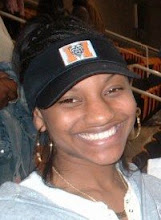“No Second Troy” by William Butler Yeats is a romantic poem that relays the suffering he has endured from loving Maud Gonne all his life. The poem has abab ,cdcd, and efef rhyme patterns with decasyllabic line patterns.
Maud is a divorcee that has return to her father’s home. Upon seeing her again, Yeats love for her revives. He has made various advances with little results. Maud has begun to consume his every waking hour. “Why should I blame her that she filled my days with misery” (1118)? After the divorce, Maud became a headstrong Irish nationalist from nobility. “ That she would of late have taught to ignorant men most violent ways or hurled the streets upon the great” (1118). Yeats realizes that he has to show courage with no doubt of his love for her, but can he reveal this.
Maud’s beauty is such that he compares it to Helen of Troy and the destruction that was caused by it. “With beauty like a tightened bow, a kind that is not natural in an age like this…why, what could she have done, being what she is? Was there another Troy for her to burn” (118)? To me he appears to be afraid of her beauty. I feel this is due to him being concern of others interest towards her. Can he trust that she want leave him? Can he make her happy? There are a lot of unanswered questions that must be analyzed.
I feel Yeats exhibit a lack of faith in his abilities as a suitor and will never be able to keep the attention of Maud or any woman unless he gets rid of his doubts.
Subscribe to:
Post Comments (Atom)

Bianca,
ReplyDeleteSome good observations about Yeats's obsessive and unrequited relationship with Maud Gonne. Your use of quotations would be better with more context and lead in before them, and some discussion and analysis after them. You just tend to drop the quoted lines into your post, which weakens their clarity and effectiveness.
I definitely think you make a good point when you say that he is "afraid" of her beauty. It seems weird that a man in love with a woman would actually fear her beauty--since men tend to write love poems about just how wonderful that beauty is--but it definitely seems true about Yeats! If he fears her beauty the same way he fears a "tightened bow," then I definitely agree that he's not ready to be around that beauty for any length of time, and I'm not sure why he even wants to.
ReplyDeleteYou make some good points in your post. Yeats was indeed very obsessive in his love as well as stubborn. And I do think that he does indeed fear her beauty. However, I have to give him credit for he has to have made much resolution and confrontation in order to be able to handle multiple rejections. Although he is afraid, he does not back down from the pains that he has suffered again and again. It was only until the very end, when he doesn’t want her to be the cause of his destruction (“burning” of the “Second Troy”) does he give up. This is but another good example of the modernist poet’s illustration of imperfect love.
ReplyDeleteYou have some really good point and I like your psychological analysis of Yeats at the end saying that he has a lack of faith in himself. I think that some of the time you just naturally start a summary of the text though. Just remember that less is more. You have enough interesting points in there but you just need to flesh them out.
ReplyDeleteOverall, good post.